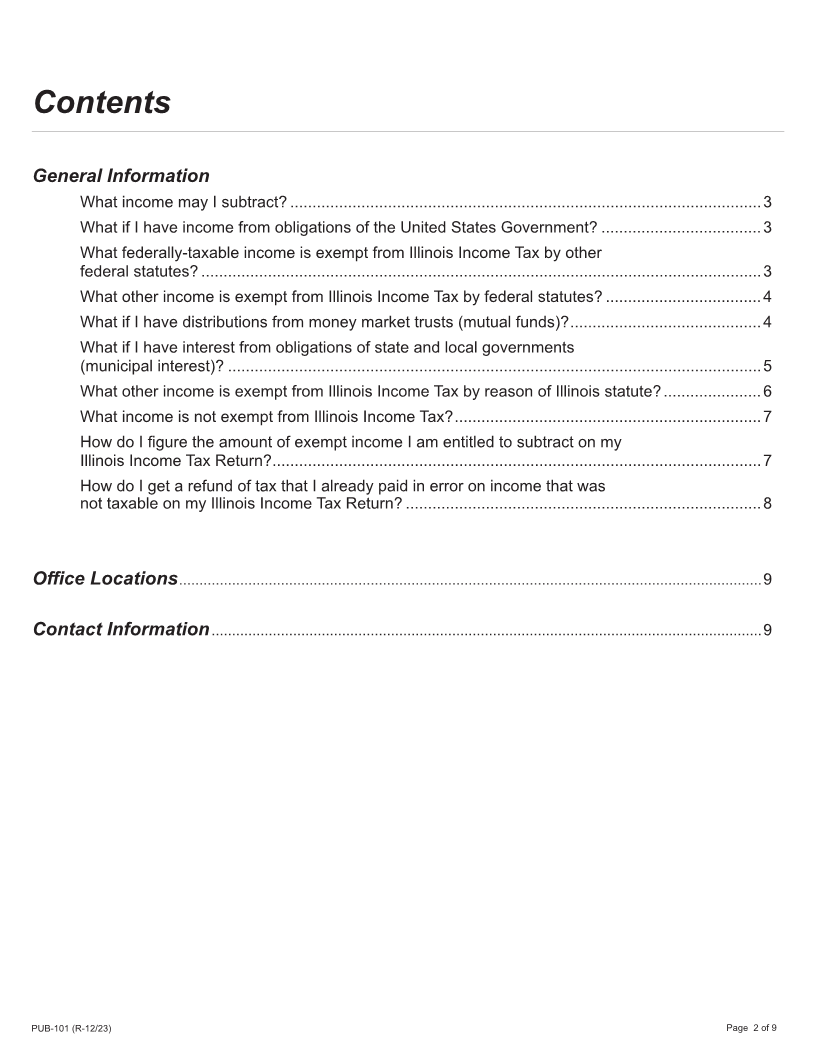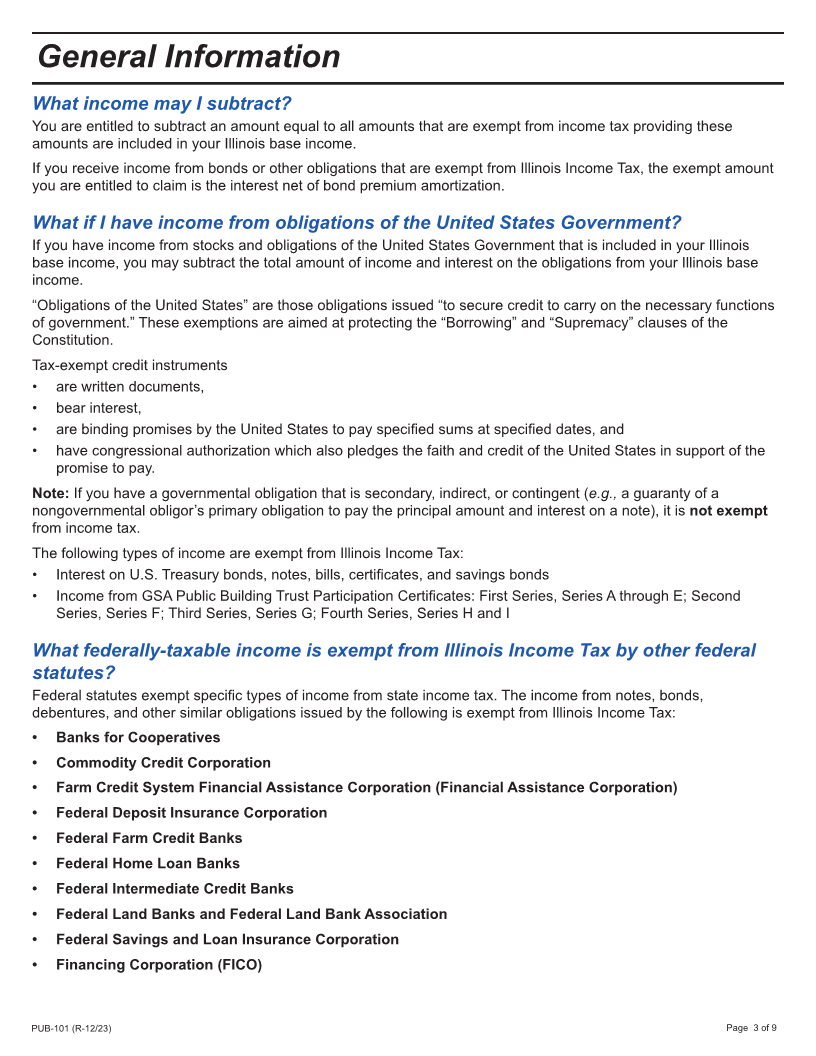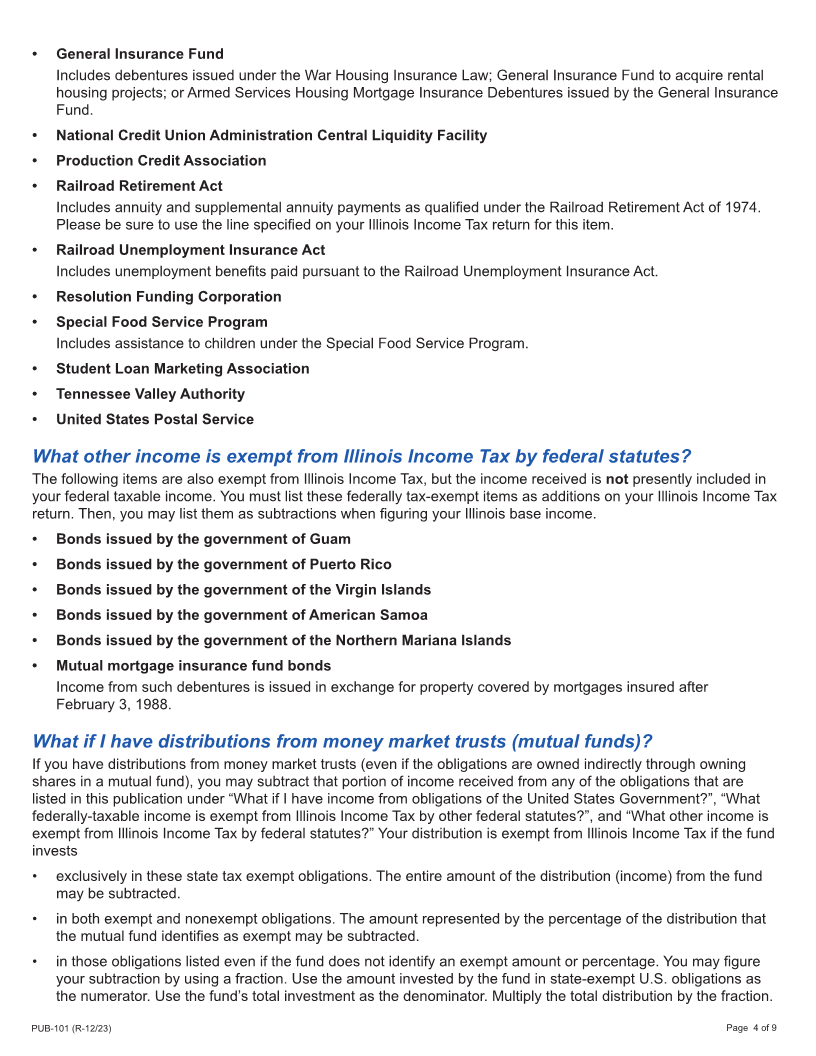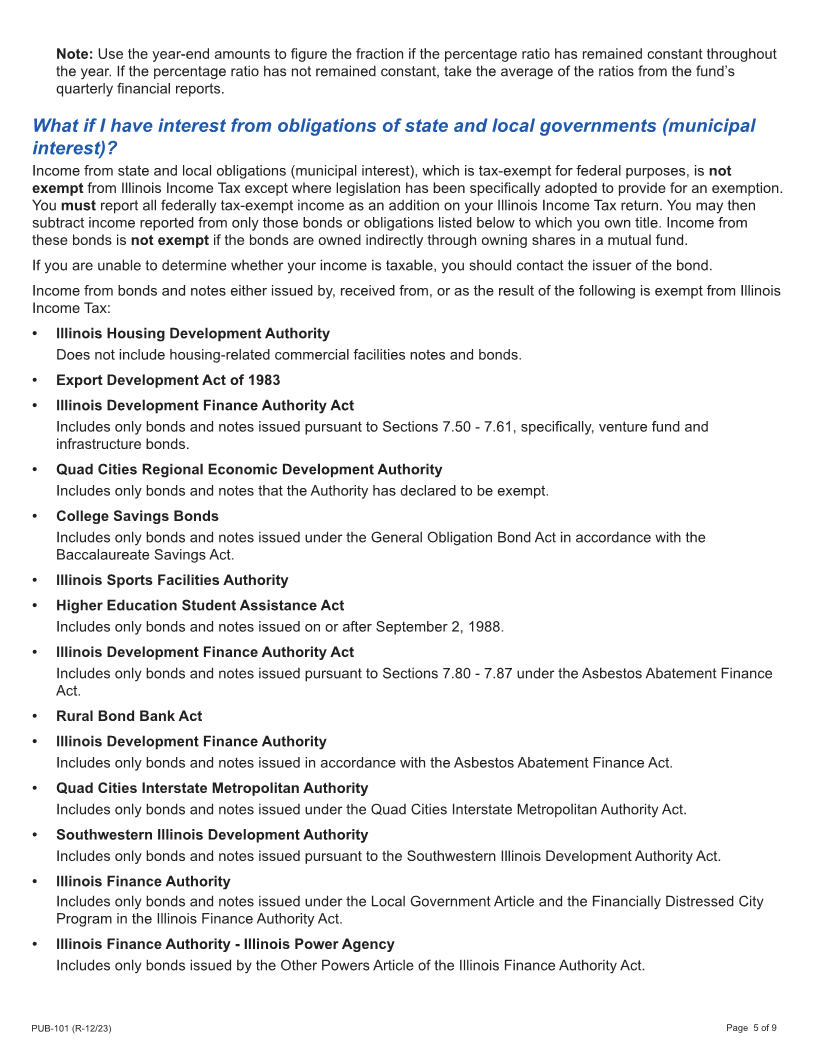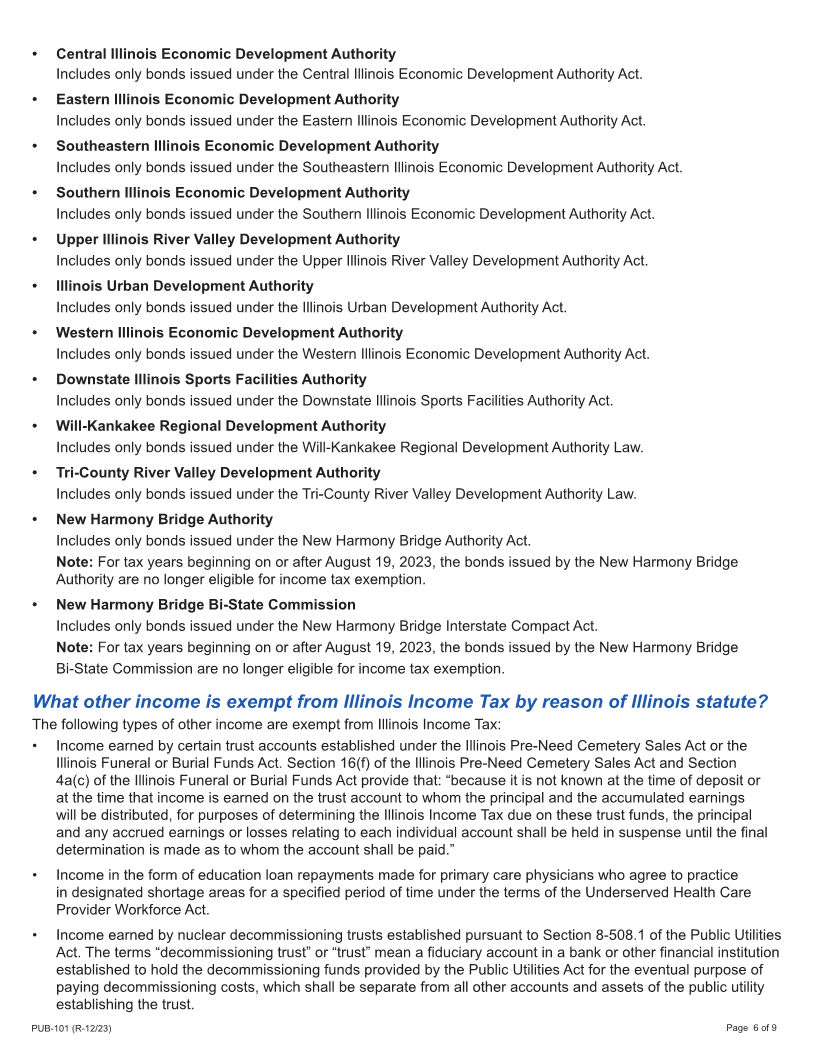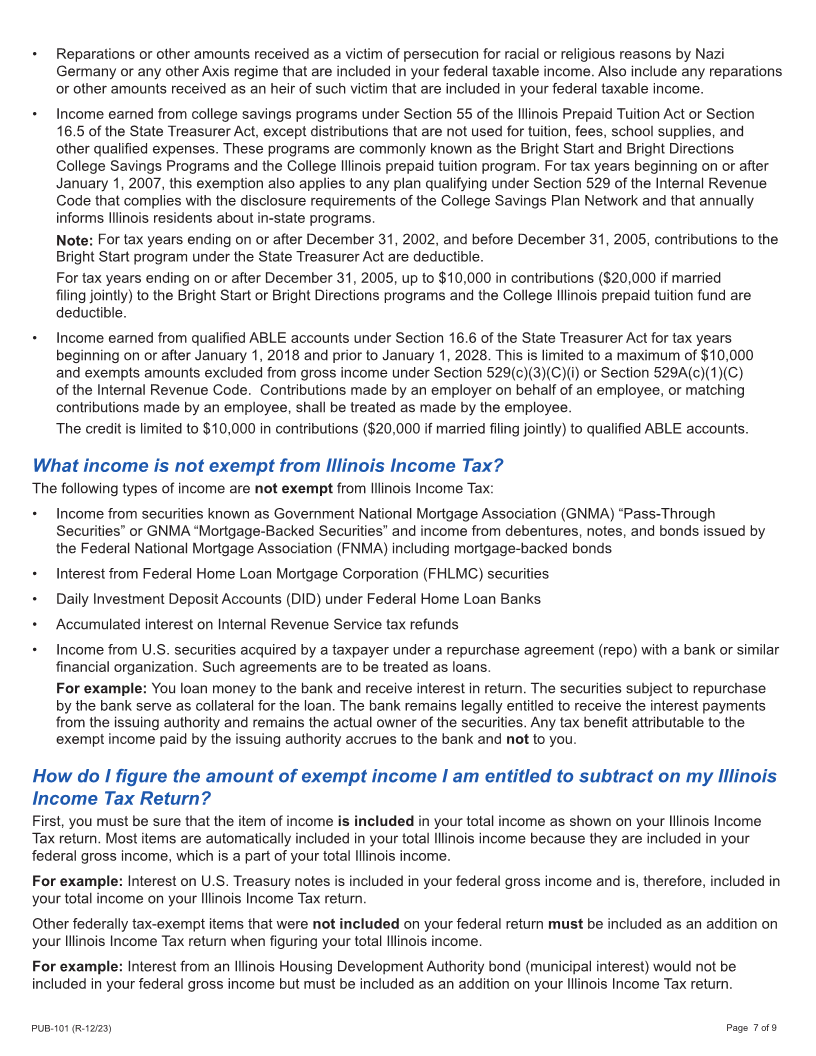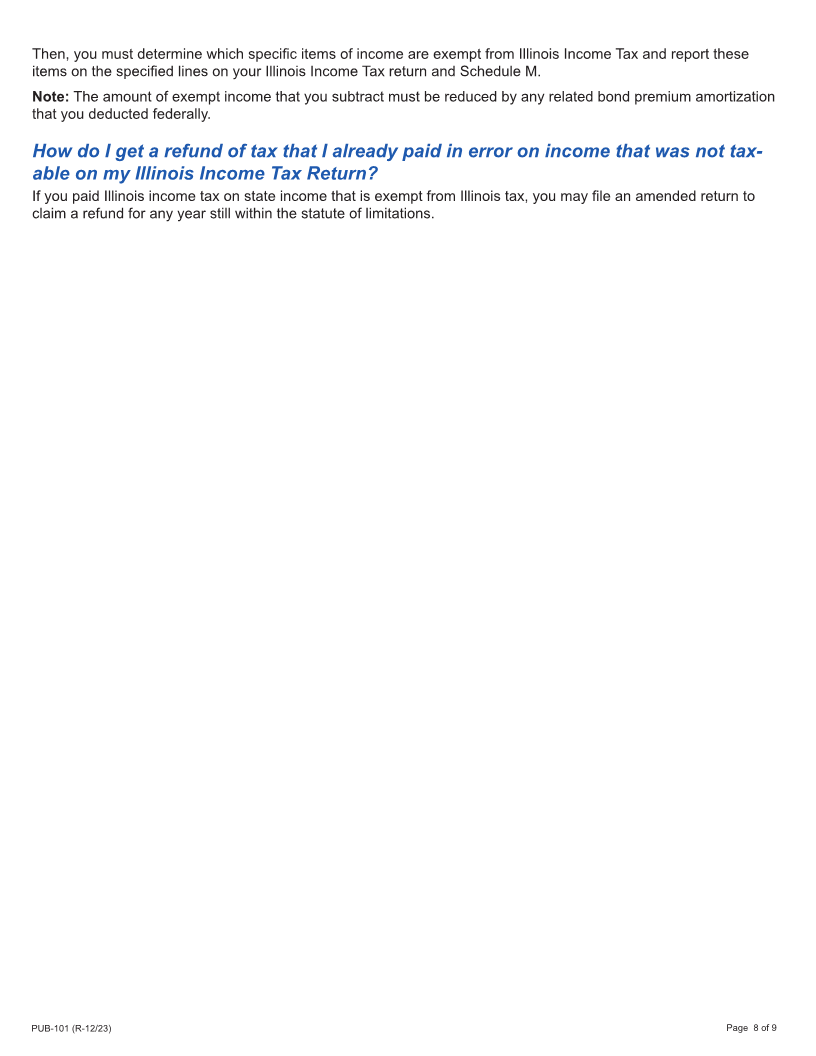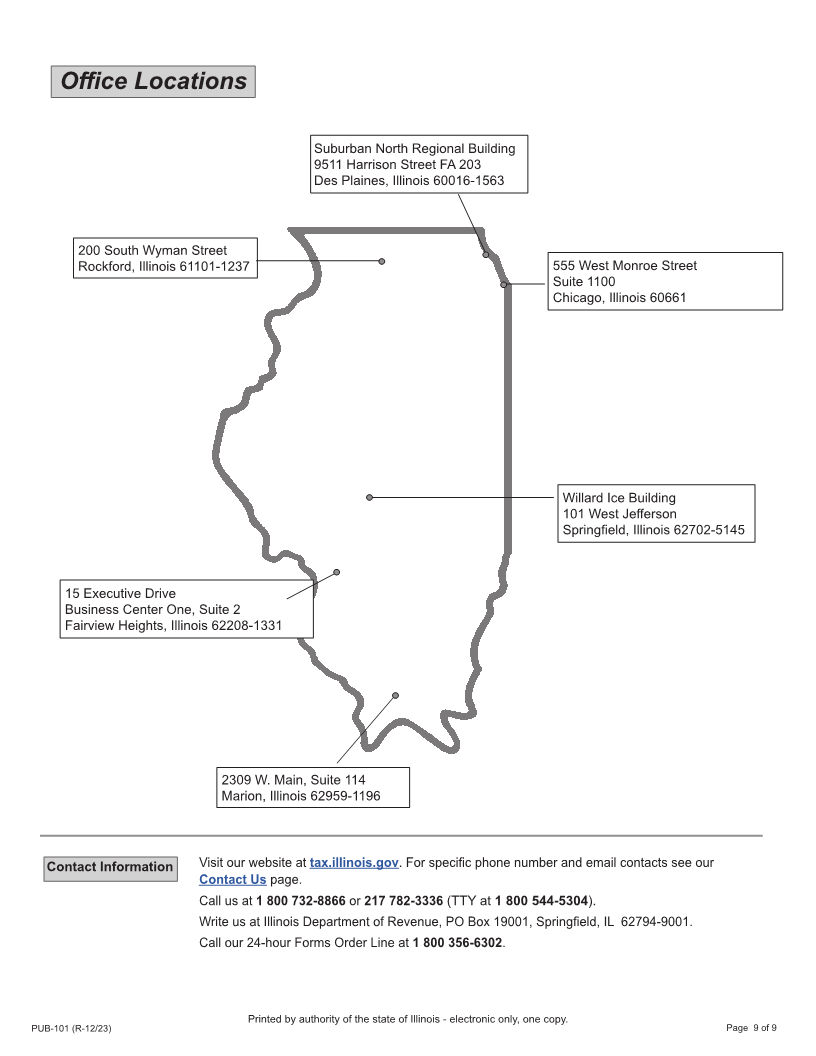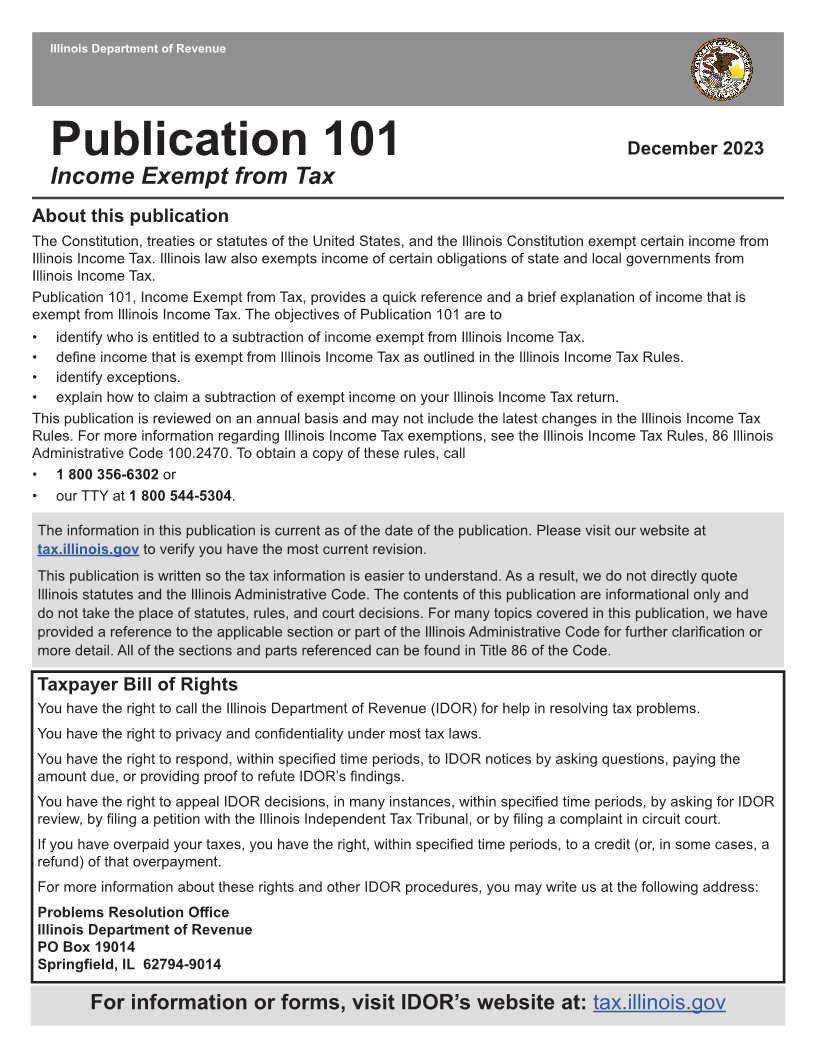
Enlarge image
Illinois Department of Revenue
December 2023
Publication 101
Income Exempt from Tax
About this publication
The Constitution, treaties or statutes of the United States, and the Illinois Constitution exempt certain income from
Illinois Income Tax. Illinois law also exempts income of certain obligations of state and local governments from
Illinois Income Tax.
Publication 101, Income Exempt from Tax, provides a quick reference and a brief explanation of income that is
exempt from Illinois Income Tax. The objectives of Publication 101 are to
• identify who is entitled to a subtraction of income exempt from Illinois Income Tax.
• define income that is exempt from Illinois Income Tax as outlined in the Illinois Income Tax Rules.
• identify exceptions.
• explain how to claim a subtraction of exempt income on your Illinois Income Tax return.
This publication is reviewed on an annual basis and may not include the latest changes in the Illinois Income Tax
Rules. For more information regarding Illinois Income Tax exemptions, see the Illinois Income Tax Rules, 86 Illinois
Administrative Code 100.2470. To obtain a copy of these rules, call
• 1 800 356-6302 or
• our TTY at 1 800 544-5304.
The information in this publication is current as of the date of the publication. Please visit our website at
tax.illinois.gov to verify you have the most current revision.
This publication is written so the tax information is easier to understand. As a result, we do not directly quote
Illinois statutes and the Illinois Administrative Code. The contents of this publication are informational only and
do not take the place of statutes, rules, and court decisions. For many topics covered in this publication, we have
provided a reference to the applicable section or part of the Illinois Administrative Code for further clarification or
more detail. All of the sections and parts referenced can be found in Title 86 of the Code.
Taxpayer Bill of Rights
You have the right to call the Illinois Department of Revenue (IDOR) for help in resolving tax problems.
You have the right to privacy and confidentiality under most tax laws.
You have the right to respond, within specified time periods, to IDOR notices by asking questions, paying the
amount due, or providing proof to refute IDOR’s findings.
You have the right to appeal IDOR decisions, in many instances, within specified time periods, by asking for IDOR
review, by filing a petition with the Illinois Independent Tax Tribunal, or by filing a complaint in circuit court.
If you have overpaid your taxes, you have the right, within specified time periods, to a credit (or, in some cases, a
refund) of that overpayment.
For more information about these rights and other IDOR procedures, you may write us at the following address:
Problems Resolution Office
Illinois Department of Revenue
PO Box 19014
Springfield, IL 62794-9014
For information or forms, visit IDOR’s website at: tax.illinois.gov
